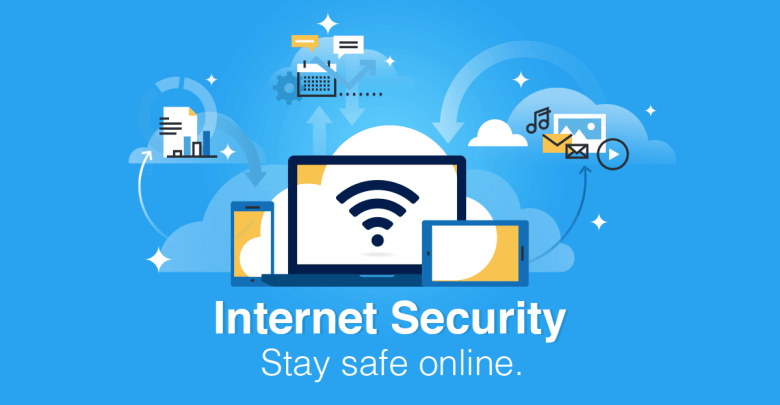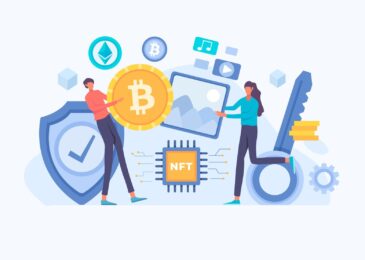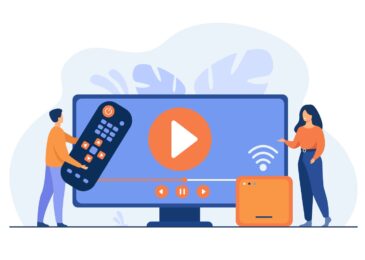5 Ways To Stay Safe Online And Deal With Internet Security Threats
5 Ways To Stay Safe Online And Deal With Internet Security Threats –
Around 390,000 new malwares are detected every day, according to the AV-Test Institute. The origin of these malwares is mainly through the internet. When you visit a suspicious link, claim lottery of 100 Million dollars from the prince through email, or by inserting a corrupted external storage device, you are vulnerable to being hacked.
When it comes to protecting yourself from being hacked, you have to be vigilant about what sites you are visiting, links you are clicking, and sites you are using to buy things from. Moreover, you need to be extra careful when it comes to sharing your personal information when signing up. Just make sure that the website is legit.
Also Read – How to Protect Your Data & Information with Cloud Security?
Here are some of the internet loopholes that can get you hacked and how to stay away from them, Let us have a look at 5 ways to stay safe online and deal with internet security threats –
1. Clicking Suspicious Links –
While surfing websites, you might come across various links that are clickable and labeled as downloadable. Webmasters usually monetize their websites to earn some revenue. Especially when it comes to content downloading websites such as photos, videos, and music websites, you can’t even judge which one is a legitimate link.
We are not talking about all the websites. Some of the websites are trustworthy and are safe to download any file. But in most cases websites are filled with malicious links that inject into your computer, making the data vulnerable. Make sure to search on Google instead of relying on random links found on social media and forum websites.
2. Installing Unsolicited Antivirus Software –
We all know about the internet’s good side and the bad side. Sometimes you come across a popup that warns you that your PC is at risk and requires immediate action before time runs out. The new internet users who aren’t aware of these gimmicks click on the link and the supposed antivirus software starts downloading. Things get worse by the time when malware filled antivirus starts troubling your PC. The worst part is you can’t download legitimate antivirus after downloading this illegitimate one.
Make sure you install a popup and ad blocker on your web browser. Moreover, some internet service providers like Spectrum internet also offer free security suite with their plans. It will help protect your system from malicious software, remove any viruses, and set parental controls.
3. Same Password for Multiple Websites –
Almost every website demands you to sign up on the website to access exclusive content. Whether it be a social network, e-commerce, banking app, personal email account, or streaming services, you have to choose a username and a password. However, it is easy for hackers to hack your accounts if you are using the same password for each website. Especially when it comes to banking apps, your account is vulnerable to attacks.
Make sure to choose different passwords for each website. It is difficult to remember a password for each website, but you can simply note it down in a text document. Choose a complex password that contains numbers, special characters, and upper and lower case alphabets. Also, change the password every six months.
4. Delaying Updates Unnecessarily –
As soon as the Windows updates are pushed, we all find ways to postpone it. If you have installed antivirus software, you are notified to update it for security updates and patches. Don’t delay updates unnecessarily for too long. These updates are meant to remove any bugs regarding security and optimize your system to deal with cyber-attacks. It takes time to install the updates and our systems work at snail pace. However, there is no better solution than installing the updates before going to bed.
5. Opening Spam Mails –
You may have come across several spam emails claiming to award you millions of dollars just by clicking the link. Beware of those spam emails as the link usually contains something suspicious and your PC will be at higher risk of malware, Trojans, and viruses. Open emails from trusted sources and make sure to check the links before opening.
Conclusion –
The Internet is full of vulnerabilities and companies are investing millions of dollars to avoid cyber-threats. The same goes for a normal internet user like you – you can’t stay safe without taking precautionary measures. Follow the aforementioned steps to keep the hackers away.
Also Read – Best Ways to Improve Home & Office Security in 2020





